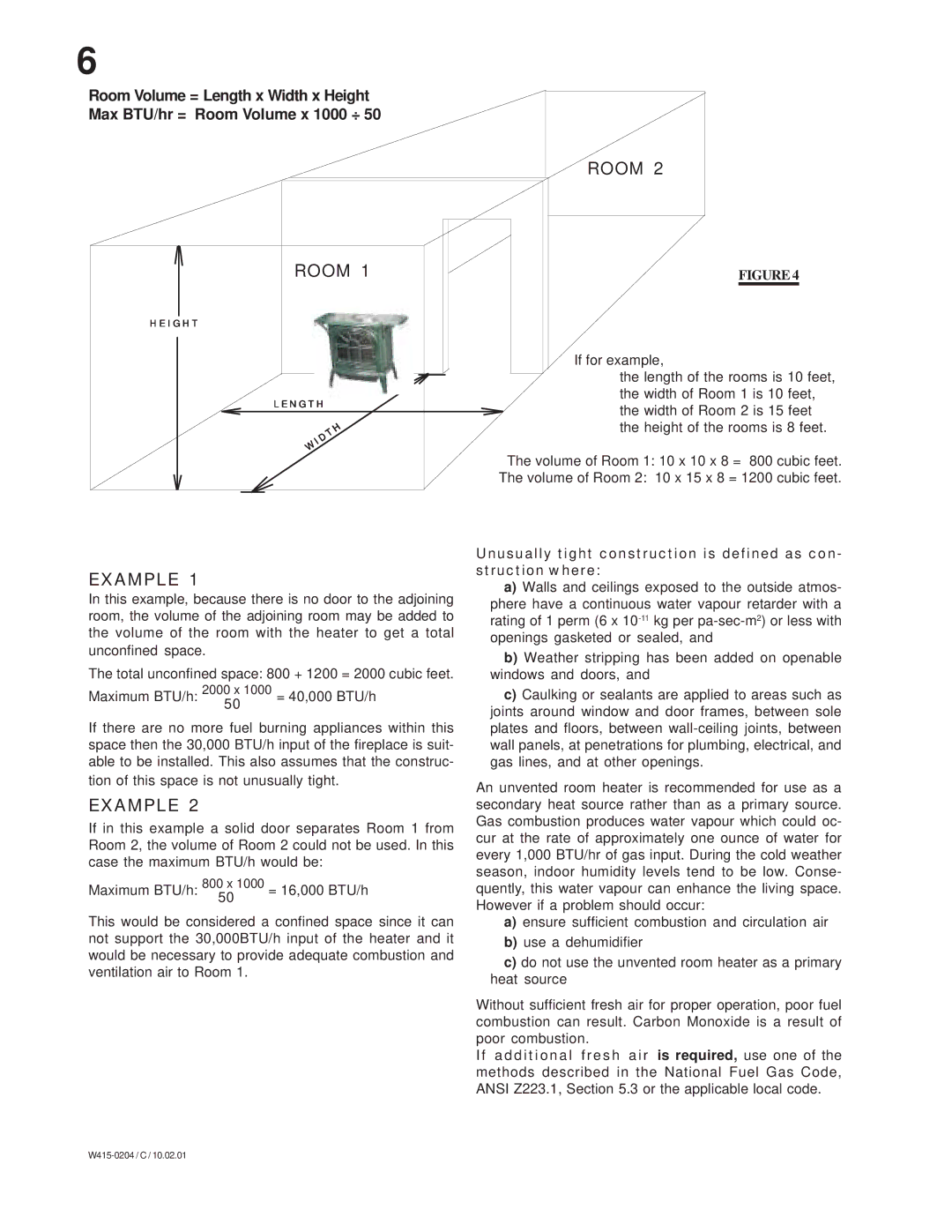
6
Room Volume = Length x Width x Height Max BTU/hr = Room Volume x 1000 ÷ 50
ROOM 1
H E I G H T
LENGTH
ROOM 2
FIGURE 4
If for example,
the length of the rooms is 10 feet, the width of Room 1 is 10 feet, the width of Room 2 is 15 feet the height of the rooms is 8 feet.
The volume of Room 1: 10 x 10 x 8 = 800 cubic feet. The volume of Room 2: 10 x 15 x 8 = 1200 cubic feet.
EXAMPLE 1
In this example, because there is no door to the adjoining room, the volume of the adjoining room may be added to the volume of the room with the heater to get a total unconfined space.
The total unconfined space: 800 + 1200 = 2000 cubic feet.
Maximum BTU/h: 2000 x 1000 = 40,000 BTU/h
50
If there are no more fuel burning appliances within this space then the 30,000 BTU/h input of the fireplace is suit- able to be installed. This also assumes that the construc-
tion of this space is not unusually tight.
EXAMPLE 2
If in this example a solid door separates Room 1 from Room 2, the volume of Room 2 could not be used. In this case the maximum BTU/h would be:
Maximum BTU/h: 800 x 1000 = 16,000 BTU/h
50
This would be considered a confined space since it can not support the 30,000BTU/h input of the heater and it would be necessary to provide adequate combustion and ventilation air to Room 1.
Unusually tight construction is defined as con- struction where:
a)Walls and ceilings exposed to the outside atmos- phere have a continuous water vapour retarder with a rating of 1 perm (6 x
b)Weather stripping has been added on openable windows and doors, and
c)Caulking or sealants are applied to areas such as joints around window and door frames, between sole plates and floors, between
An unvented room heater is recommended for use as a secondary heat source rather than as a primary source. Gas combustion produces water vapour which could oc- cur at the rate of approximately one ounce of water for every 1,000 BTU/hr of gas input. During the cold weather season, indoor humidity levels tend to be low. Conse- quently, this water vapour can enhance the living space. However if a problem should occur:
a)ensure sufficient combustion and circulation air
b)use a dehumidifier
c)do not use the unvented room heater as a primary heat source
Without sufficient fresh air for proper operation, poor fuel combustion can result. Carbon Monoxide is a result of poor combustion.
If additional fresh air is required, use one of the methods described in the National Fuel Gas Code, ANSI Z223.1, Section 5.3 or the applicable local code.
